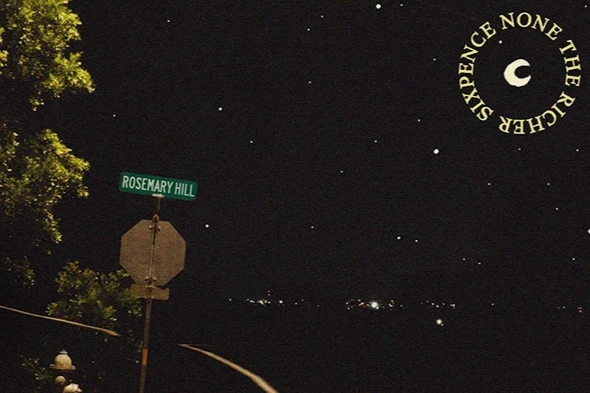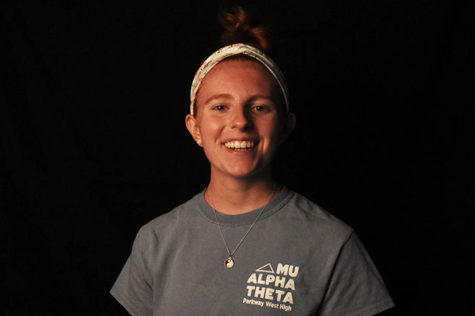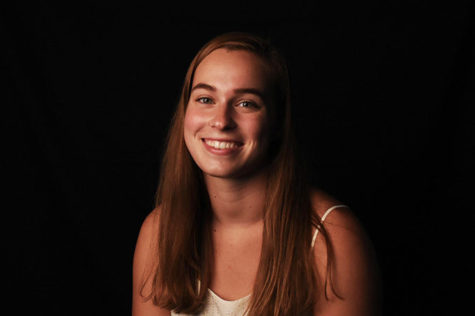If you want to find senior Gwyn Allendorph, check a practice room, a stage in Webster Groves or perhaps Powell Hall. An accomplished oboist, Allendorph is currently in four symphonic orchestras and has represented the school in the All-Suburban and All-State Bands.
This passion and drive for music started when she first picked up the oboe in fifth grade.
“My dad was a music major and my whole family, really, is into listening to music and just having it be part of our lives,” Allendorph said. “When I was younger, my dad would play classical music, Pink Floyd [and] classic rock and my mom would sing medieval army songs.”
She was playing in the seventh-grade band when she was a sixth grader and, as she progressed through middle school, the growth opportunities that she had through the middle school were not enough. In eighth grade, Allendorph auditioned for the Webster Young People’s Concert Orchestra. To prepare, she had three private lessons in the span of four days.
“I kept getting so stressed out about my reeds, about my playing ability, and I felt like I was getting worse, I felt like I was going to fail,” Allendorph said. “And after that first audition I made it in, I made second oboe and that was the first group that ever made me realize that I wanted to become a professional musician.”
While she does not stress out as much about auditions anymore, she still puts in just as much work.
“For each audition, generally I always start any of my practicing with playing all of my scales with different articulations and different patterns. [Each audition] will either require you to play a solo of your choice or excerpts so you have to show your ability, the range of your instrument and the strong parts of how you play,” Allendorph said. “For me personally it’s a lot of musicality: I can add a lot of dynamics and vibrato and phrasing into things whereas technically I’m a little weaker.”

A complete batch of reeds takes Allendorph around two weeks to make.¬ÝTypically she follows one template and makes minor adjustments to the reeds to match the music she is playing. ‚ÄúAs an oboist, you pretty much have to make your own reeds if you want to be at all successful with it,‚Äù Allendorph said.
Now, with two to three private lessons and three to four orchestra rehearsals every week, Allendorph’s life revolves around her music. She makes her own reeds for her oboe, a process that typically takes her two weeks, on top of practicing solos, orchestra music and scales.
“On a day when I don’t have any rehearsals, generally [my schedule is that] I go to school, I stay after school for a few hours and get some practice there, and if I have study hall during school I practice then as well as after school. When I’m home I take a quick break, work on homework, eat dinner and then I’m working on reeds again. I spend between two to six hours a day working on [musical] things,” Allendorph said.
She seeks an oboe performance major in college, and her goal of becoming a professional oboist is driven not by what lies ahead of her, but of the memories she has already made and experiences she has already had.
“It wasn’t until I started playing with orchestras and we started playing real pieces that I was just astounded,” Allendorph said. “I’m making music—this is something that we all do together, we all have the same passion and care for making this beautiful thing; and when I’m really struggling with things, whether it be practicing or reeds or the instrument’s not working because of some reason, it gets really hard. And it’s really easy to want to give up but it’s important to remember the parts that make you smile: for me it’s memories of being on stage, like at Powell Hall, being completely surrounded by music.”



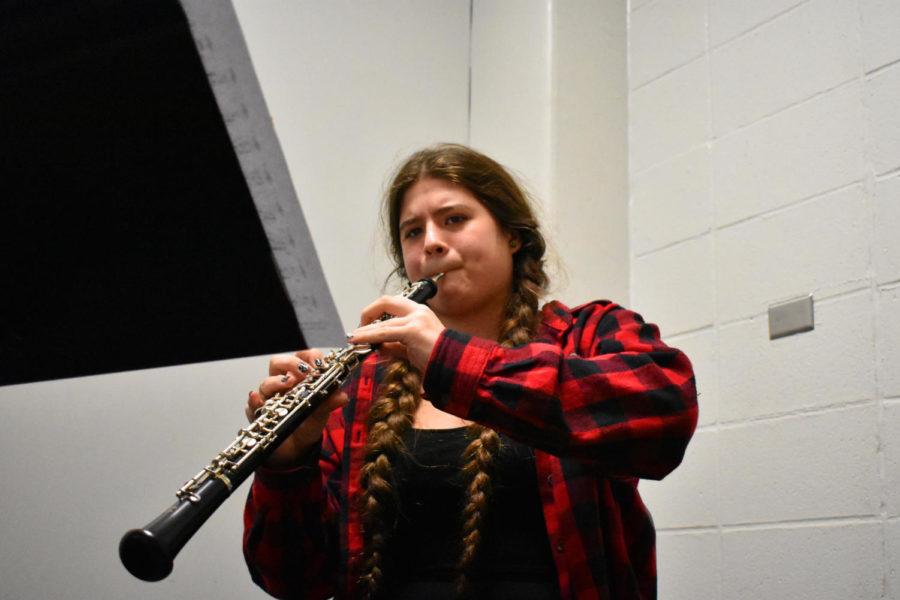
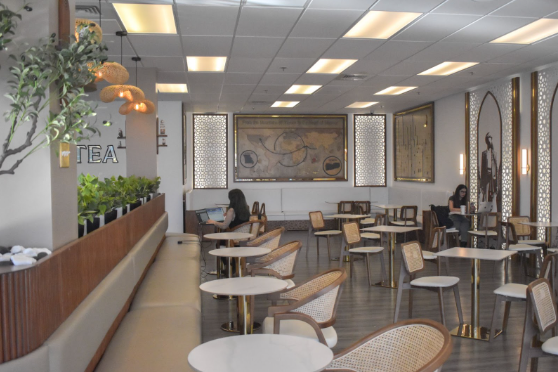

![There are more than 20 open cardio machines at Crunch Fitness. I enjoyed the spacious environment at Crunch, a sentiment that was shared by sophomore Sanjana Daggubati. “[Going to] Crunch Fitness was the right decision because [it] feels more professional. Crunch’s workers are laid back, but not to the point where they don't care,” Daggubati said.](https://pwestpathfinder.com/wp-content/uploads/2025/09/IMG_5242-1-1200x900.jpg)

![Various empty Kit Kat wrappers crowd the desk, surrounded by scoring sheets. While production of Kit Kat flavors in the U.S. is limited, Nestlé, the owner of Kit Kat, manufactures hundreds of unique flavors in Japan, including the flavors ocean salt and passion fruit. “I thought there [were] some interesting flavors, and a lot of them were really unexpected,” senior Elle Levesque said.](https://pwestpathfinder.com/wp-content/uploads/2025/09/image-2.png)


![Pantone’s selection of the 2025 Color of the Year is revealed: Mocha Mousse. Ceramics teacher Ashley Drissell enjoys this year’s selection. “Maybe it’s the name but [Mocha Mousse] reminds me of chocolate and coffee. It makes me hungry. It’s very rich and decadent,” Drissell said.](https://pwestpathfinder.com/wp-content/uploads/2025/02/DSC_0015-1200x800.jpg)

